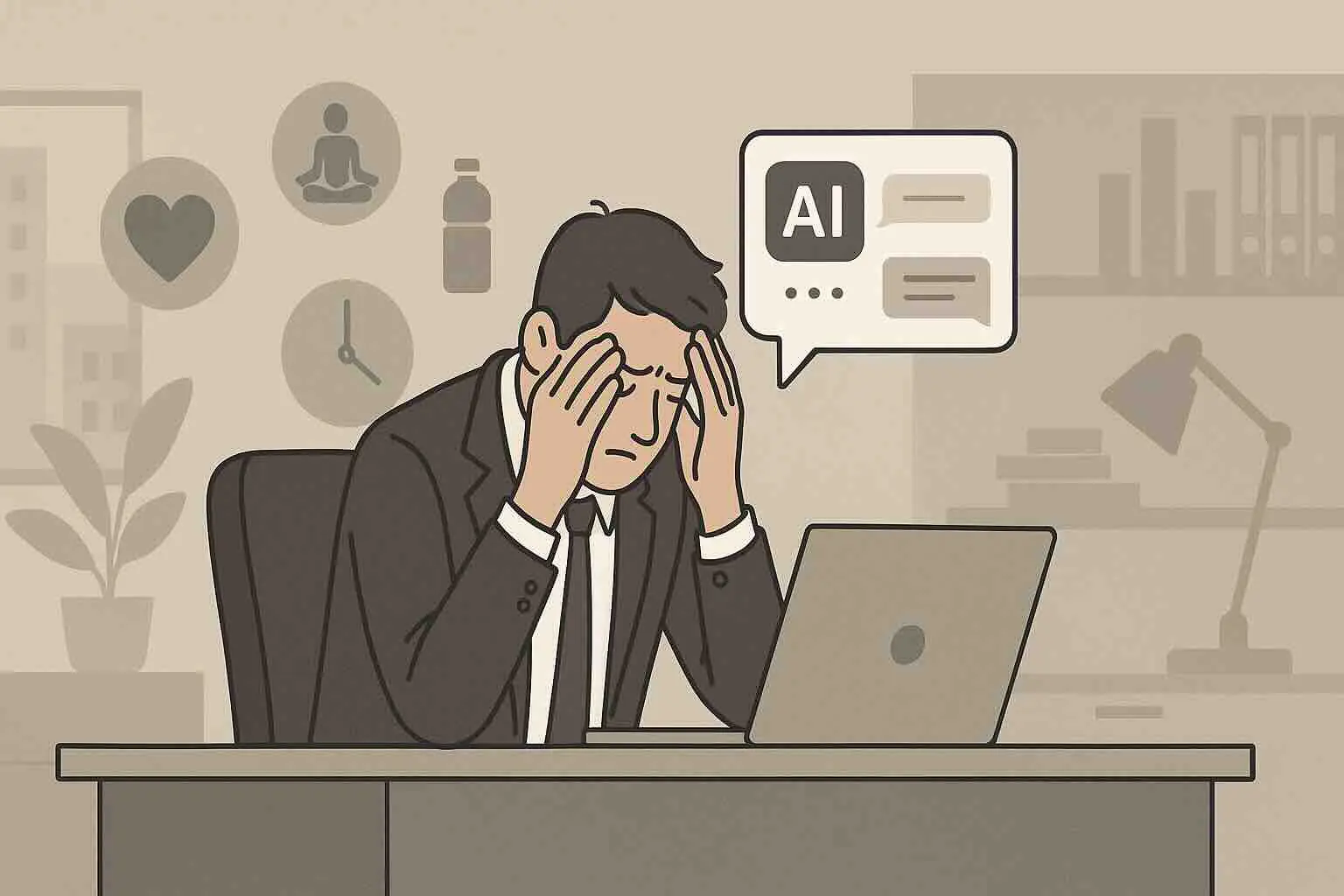The Burnout Epidemic in Today’s Workplace
Burnout isn’t a buzzword—it’s a chronic reality for nearly one in three employees. A 2024 Gallup study found that 28% of workers report feeling burned out “often” or “always,” with nearly half experiencing burnout symptoms at least some of the time.¹ Yet usage of employer-provided mental health resources has plummeted from 51% in 2023 to just 35% today,² even as organizations pour more funding into Employee Assistance Programs (EAPs), on-site counseling, and digital wellness platforms.
Why Available Resources Go Unused
1. Stigma and Confidentiality Concerns
Employees fear being labeled “weak” or worry that accessing mental health benefits will jeopardize promotions. In one survey, 50% of workers cited stigma as the main reason they avoid EAPs.³ Even when companies promise confidentiality, outdated program structures and co-location with HR offices can undermine trust.
2. Perceived Effectiveness
Traditional in-person counseling often requires multiple sessions before benefits materialize. Long wait times—sometimes up to 25 days for an appointment—leave employees frustrated and skeptical.⁴ When deadlines loom and stress spikes, delayed access feels impractical.
3. Practical Barriers
Shift workers, remote teams, and global offices face scheduling challenges. A manufacturing employee on a night shift may find daytime counseling unavailable, while hybrid staff struggle to navigate complex telehealth portals. These hurdles compound feelings of isolation rather than alleviating them.
4. Lack of Personalization
“One-size-fits-all” wellness challenges and generic webinars miss the mark for diverse workforces. Employees juggling caregiving, financial stress, or pre-existing mental health conditions need tailored support—yet most EAP packages lack AI-driven personalization or data-backed assessments.
Bridging the Gap: A Holistic Approach
To reverse underutilization, organizations must address both individual and systemic factors:
- Normalize Mental Health Conversations. Integrate mental health check-ins into team meetings and leadership communications. When leaders share their own coping strategies, they signal that seeking help is a sign of strength, not weakness.
- Reduce Friction. Simplify enrollment and scheduling with single-sign-on (SSO) portals and 24/7 access. Mobile-first interfaces meet employees where they are—on smartphones during commutes or breaks.
- Offer Tiered Solutions. Blend self-guided digital tools with on-demand coaching and traditional therapy. This “stepped-care” model ensures that low-acuity concerns receive immediate support while higher-acuity cases escalate smoothly to licensed professionals.
- Leverage Data Responsibly. Use anonymous, aggregated usage metrics to identify participation gaps by department or shift. Data-driven insights guide targeted outreach and program refinement without compromising individual privacy.
How Noah AI Tackles Key Barriers
Noah AI, an AI-powered emotional coach, exemplifies a modern solution designed to overcome the challenges above.
- Instant, Voice-First Access
Noah’s “Call Noah” feature offers 3-minute voice sessions on demand—no waitlists, no appointments. Whether an employee needs a midday reset or a late-night debrief, support is just a tap away. - Anonymity by Design
Conversations are end-to-end encrypted, and no identifying metadata feeds back to employers. This privacy-first approach dismantles stigma, empowering employees to seek help without fear of repercussion. - Evidence-Based Coaching
Built in partnership with licensed therapists, Noah’s conversational coach uses Cognitive Behavioral Therapy (CBT) exercises, guided breathing, and reframing techniques. Studies show digital CBT reduces stress symptoms by up to 40%,⁵ validating the platform’s clinical impact. - Adaptive Personalization
Through long-term memory, Noah learns recurring stressors—be it “Monday-morning meetings” or “quarter-end deadlines”—and proactively checks in with tailored coping strategies. This data-driven personalization boosts engagement and fosters resilience over time.
Best Practices for Launching an AI-Enhanced Wellness Program
- Executive Sponsorship: Secure visible commitment from leadership. Endorsement by C-suite sponsors drives program legitimacy.
- Multi-Channel Awareness: Promote through email, intranet banners, and team huddles. Embed direct links to Noah within existing HR platforms.
- Peer Ambassadors: Train high-usage employees as “Noah Champions” to share success stories.
- Regular Pulse Surveys: Capture evolving needs every quarter and iterate on support bundles—digital tools, group workshops, or one-on-one coaching.
- ROI Tracking: Measure reduction in absenteeism, turnover, and healthcare costs. Benchmark against industry norms to demonstrate value.
Conclusion
Burnout won’t vanish solely through expanded benefit catalogs. Organizations must redesign mental health support around accessibility, anonymity, and effectiveness—the very friction points that deter participation today. AI solutions like Noah AI deliver on these principles, offering 24/7, stigma-free, evidence-based support that meets employees where they are. By integrating conversational AI into a stepped-care model and actively destigmatizing resource use, companies can transform burnout management from a reactive burden into a proactive wellness strategy.
— Ready to empower your workforce? Download the Noah AI app for iPhone and Android today. Reach out to sophia@heynoah.ai if yo would like to make Noah a part of your corporate wellness program.
References
¹ Gallup State of the Workplace 2024
² EBRI Workforce Wellness Survey, 2024
³ Society for Human Resource Management (SHRM), 2024
⁴ Mental Health America Access Report, 2025
⁵ Journal of Digital Therapy, “Efficacy of AI-Delivered CBT,” 2023







